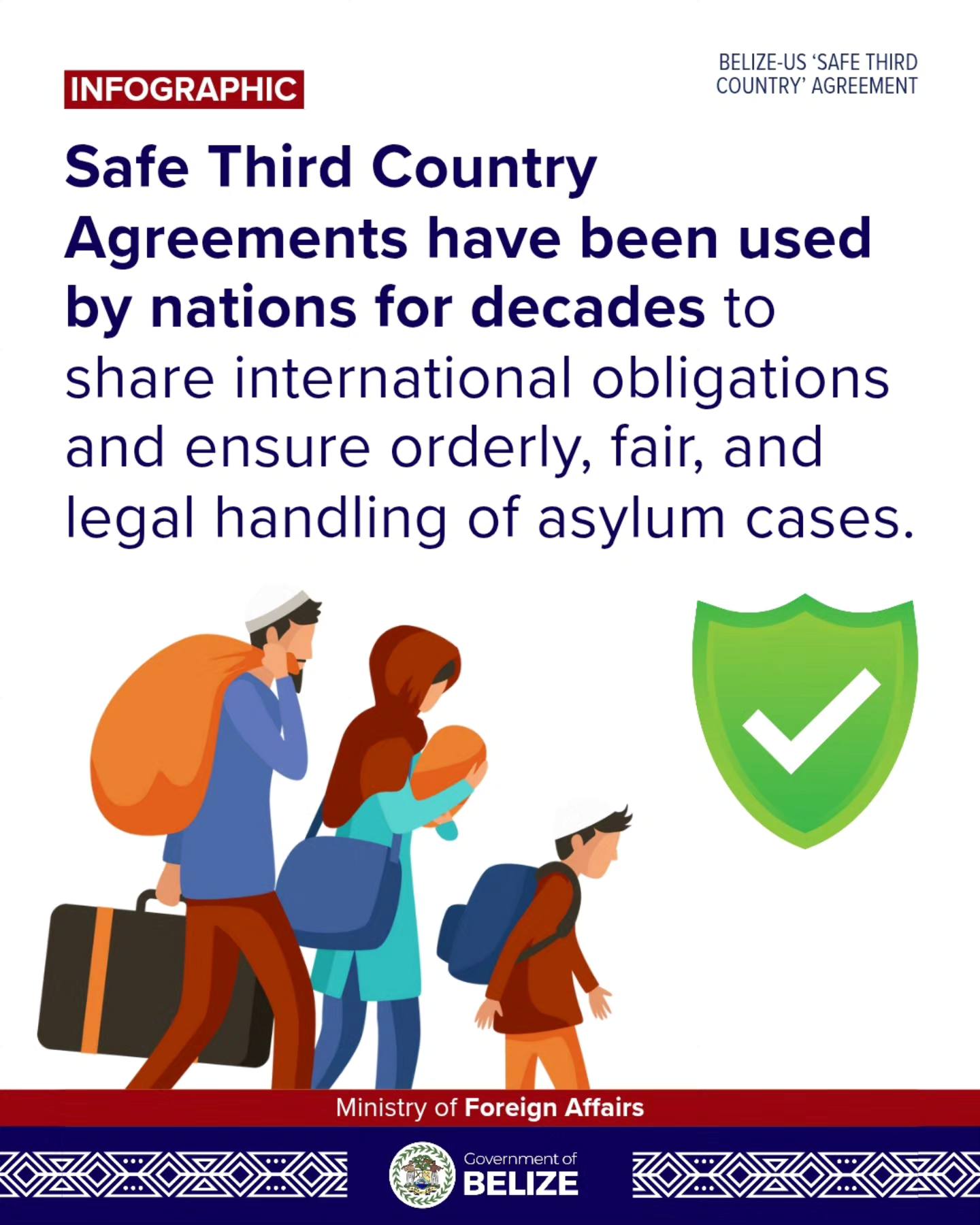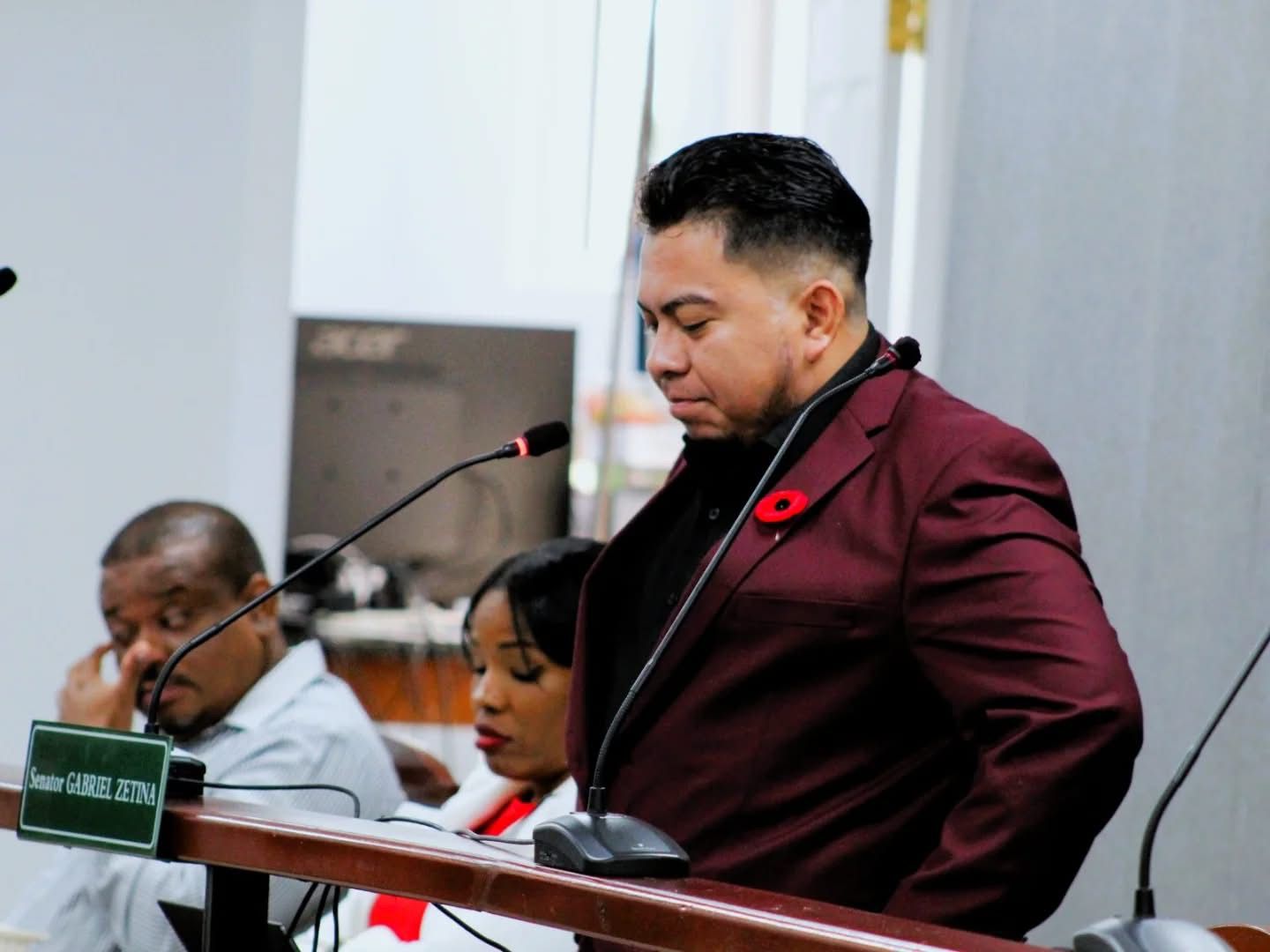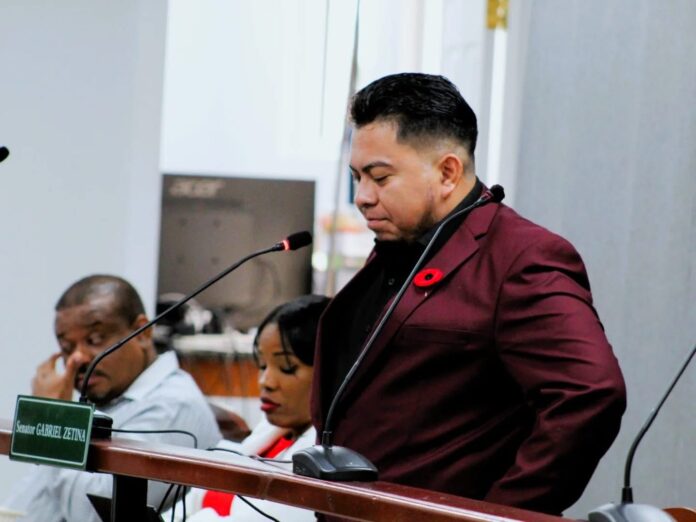On November 12, 2025, Senator Gabriel Zetina voiced strong concerns during an exclusive interview regarding Belize’s recent ratification of the Safe Third Country Agreement with the United States. The agreement, formally approved during the Senate sitting on November 11th, has stirred public debate over its potential effects on Belize’s immigration system, financial stability, and national sovereignty.
Under the terms of the agreement, Belize must process asylum seekers who would otherwise apply for refuge in the United States. These individuals must remain in Belize while their claims are reviewed, effectively making Belize a new host for asylum procedures previously handled by U.S. authorities. While intended to manage regional migration flows, the agreement has raised red flags among some lawmakers and civil society groups who worry about its economic and legal implications.
Negotiations leading up to the ratification reportedly included verbal assurances from the U.S. government of financial support and a cap of ten asylum transfers at a time. However, the signed treaty, particularly Article 7, clearly states that “nothing set forth in this Agreement shall be interpreted in such a way that commits the disbursement or allocation of funds by the Parties.” This clause effectively binds Belize to the agreement without guaranteeing any direct funding or resources from the U.S. to support its implementation. Furthermore, to operationalize the arrangement, Belize must amend its existing immigration laws, a move some legislators view as undermining the nation’s legislative independence.
Speaking on his position, Senator Zetina stated, “My main concern is simple: Belize is being asked to carry another country’s immigration burden without any concrete guarantee of resources, funding, or capacity support.” He explained that under the agreement, asylum seekers must withdraw their U.S. claims and begin a new process entirely within Belize. “We’re not just talking about a temporary stay; we’re talking about people essentially starting over here,” Zetina said. “Forcing them to abandon their U.S. claim and reapply here means they’ll be settling here, having families, needing education, housing, and land. That adds to our existing burden as a nation, and there’s been no impact assessment or financial planning on how we’ll handle that.”
Zetina also expressed deep concern over sovereignty and constitutional implications. “This agreement essentially compromises our sovereignty by placing the management of a segment of U.S. immigration policy onto Belizean soil,” he argued. “We’ll have to return to the Senate and amend our immigration laws to fit this new framework, which is a direct erosion of our legislative independence.” He added that under the Belize Constitution, any treaty requiring domestic law amendments or affecting sovereignty “must be thoroughly examined,” yet, in this case, Belize is “reshaping its immigration framework to fit a foreign agreement.”
The senator criticized the absence of guaranteed funding or reciprocal commitments, describing it as “an undue burden on Belizean taxpayers.” He called for greater transparency and public consultation before the policy is fully enacted. “One alternative I’d propose is ensuring full public consultation so Belizeans understand exactly what’s at stake before any final decisions,” Zetina said. He also urged the government to seek “a financial guarantee or at least some form of concrete support” from the U.S., particularly assistance to strengthen Belize’s immigration system and border security.
Zetina said he envisions “a more collaborative regional framework” to share responsibilities across Central America and the Caribbean. “That kind of cooperation, with clear and transparent terms, would help maintain and even strengthen our relationship with international partners while safeguarding Belize’s interests,” he concluded.
As Belize moves forward, implementing the Safe Third Country Agreement will require navigating complex political, legal, and social dimensions—balancing international cooperation with domestic priorities and limited national resources. The coming months will reveal how the government adapts its immigration framework to meet the obligations set out in this controversial new accord.

Share
Read more

